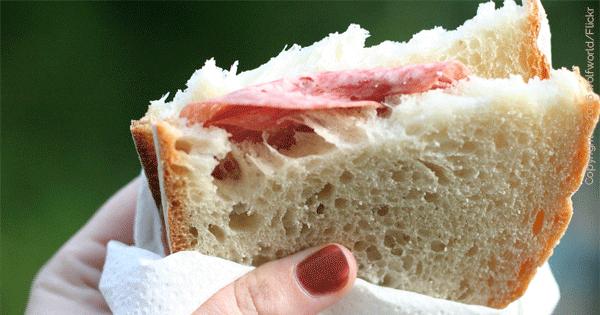Advertisement
While most nutritionists would argue that portion control is more important than the actual food you eat, there are a handful of exceptions to that rule. In general, there are a few ingredients that nutritionists simply refuse to eat. Some of these ingredients are known carcinogens that should have no place in your pantry, while others are severely under-researched.
1. Sugar. Consuming more than 25 grams (or 6 teaspoons) has been associated with obesity, type II diabetes, cardiovascular disease, certain cancers, tooth decay, non-alcoholic fatty liver disease, so be sure to check your sugar intake! "If it's in the first three ingredients--in any form--I won't buy the product," Kristin Kirkpatrick, M.S., R.D., a wellness manager at the Cleveland Clinic Wellness Institute, explained to Yahoo! Health.
2. Monosodium Glutamte (MSG). "I don’t love the very high sodium content that goes along with this ingredient." Keri Gans, R.D., author of The Small Change Diet, said to Yahoo! Health. MSG is most commonly added to Chinese foods and products, as well as canned vegetables, soups, and some meats. It tends to have some adverse side effects, including migraines and even increased appetite.
3. Potassium Benzoate. "Sodium and potassium benzoate are added to some diet soft drinks and fruit drinks," Leslie Bonci, R.D., explained to Shape magazine. "They can form benzene, which is a carcinogen when combined with vitamin C, the ascorbic acid in juice or soda." Recent research also shows a link between diet cola and weight gain. Be aware though: diet soda isn't the only place you might find this ingredient! It also tends to show up in apple cider, low-fat salad dressings, syrups, jams, olives, and pickles, so make sure you read the labels!
4. High-Fructose Corn Syrup. "High-fructose corn syrup (HFCS) is a good indication that the food is highly processed with lots of added sugars. HFCS is not limited to sodas and sugary drinks, so don’t be fooled! HFCS is often in many multigrain breads, muffins, ketchup, and salad dressings." Keri Glassman, R.D., a Women’s Health contributor, explained to Yahoo! Health.
5. Caramel Color. A seemingly harmless ingredient, caramel color is one of the most controversial ingredients commonly used today. Many studies show that this lab-made ingredient is carcinogenic; specifically that it can can cause lung cancer and leukemia."Though the research revealing the potential carcinogenicity of caramel color was done using animals, I still think it’s better to play it safe and avoid any products with this ingredient." Joy Bauer, M.S., R.D., the nutrition and health expert for NBC’s TODAY Show and Founder of NourishSnacks, explained to Yahoo! Health. Sadly, caramel color is everywhere (sometimes needlessly). It is used as a food coloring in sodas, dressings, beer, bread, ice cream, fruit preserves, and even lattes (especially pumpkin spice lattes at Starbucks!).
6. Fractionated Palm Kernel Oil. "Palm kernel oil is about 80 percent saturated fat and leads to increased LDL (bad) cholesterol," says Christine Gerbstadt, M.D., R.D., a spokesperson for the Academy of Nutrition and Dietetics. Palm fruit oil, however, is a great choice. It has less saturated fat and a healthy dose of vitamin E (a key player in maintaining a healthy immune system and metabolism), so it's better for you. However, it still isn't as healthy extra-virgin olive, canola, coconut, or almond oils.
7. Carrageenan. "It’s a thickener that’s often found in dairy and milk products, and I’m not convinced on its safety yet." Brooke Alpert, M.S., R.D., founder of B Nutritious, explained to Yahoo! Health. "So until it’s proven safe, it’s something I avoid." A 2001 study had alarming results on the side effects of carrageenan, suggesting that it could cause ulcerations and cancerous lesions in the colon. However, the study has been refuted by some experts who think that the study was using a similar but totally different strain of carrageenan. For that reason, it is not classified as a known carcinogen--yet.
What do you think of this list? Do you commonly eat any of these ingredients? What do you avoid? Let us know what you think in the comments!
Copyright © 2006 wolfworld/Flickr




